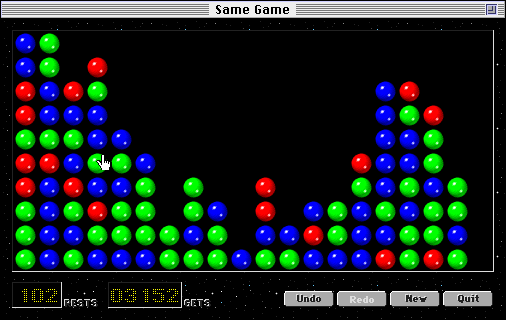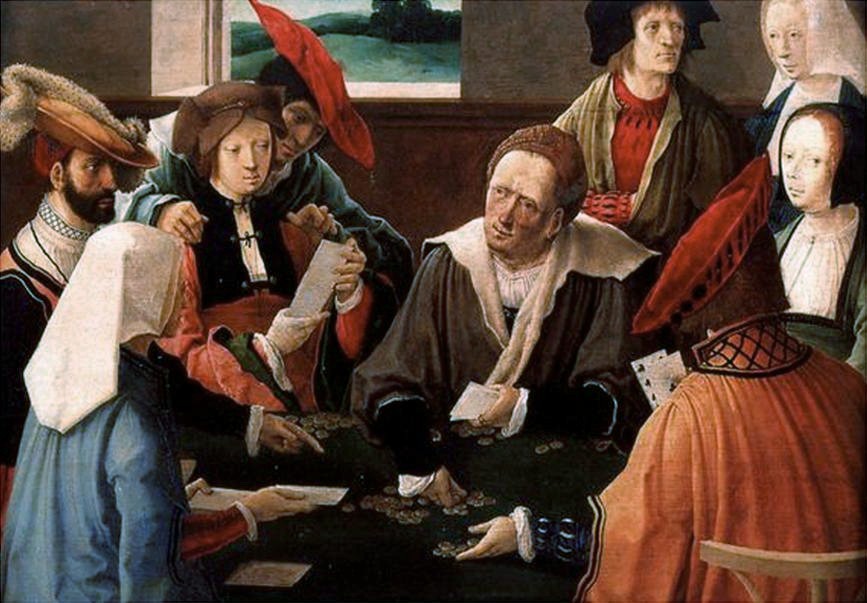|
Bit Generations
''bit Generations'' is a video game franchise for the Game Boy Advance, published by Nintendo. It was first announced under the name ''Digitylish'' at the Electronic Entertainment Expo (E3) in 2005. Each of the games in the series feature simple controls, gameplay and graphics. All the games were developed by Skip Ltd., except for ''Digidrive'', which was developed by Q-Games. The ''bit Generations'' series has only been released in Japan. The games were released in two "series" - the games in Series One were released in Japan on July 13, 2006. Series Two was released on July 27, 2006. However, from June 1, 2006, Nintendo had sent out 700 copies of the games to random Club Nintendo members, encouraging them to preview the games and to post their opinions at the ''bit Generations'' official website. Each game costs 2000 yen. In March 2006, some of the games were given an ESRB rating and were labelled under the title ''Digilux Series''. However, Nintendo of America did not annou ... [...More Info...] [...Related Items...] OR: [Wikipedia] [Google] [Baidu] |
Skip Ltd
Skip or Skips may refer to: Acronyms * SKIP (Skeletal muscle and kidney enriched inositol phosphatase), a human gene * Simple Key-Management for Internet Protocol * SKIP of New York (Sick Kids need Involved People), a non-profit agency aiding families with sick or developmentally disabled children * System of Kanji Indexing by Patterns, an original system for indexing kanji by the Kodansha Kanji Learner's Dictionary Business * Skip (transportation company), scooter sharing service * Skip Ltd., a Japanese video game developer * SkipTheDishes, food delivery company Characters * Skip Ricter, a character in the movie ''Cars'' * the title character of the autobiography '' My Dog Skip'' by Willie Morris and the film adaptation of the same name * Skip, a minor character from the TV series ''Angel'' * Skip, a character from the British children's show ''Bob the Builder'' * Skips, a character on the American animated series ''Regular Show'' * Skips, on ''Camp Lazlo'', an Americ ... [...More Info...] [...Related Items...] OR: [Wikipedia] [Google] [Baidu] |
Bit Generation Games
The bit is the most basic unit of information in computing and digital communication. The name is a portmanteau of binary digit. The bit represents a logical state with one of two possible values. These values are most commonly represented as either , but other representations such as ''true''/''false'', ''yes''/''no'', ''on''/''off'', or ''+''/''−'' are also widely used. The relation between these values and the physical states of the underlying storage or device is a matter of convention, and different assignments may be used even within the same device or program. It may be physically implemented with a two-state device. A contiguous group of binary digits is commonly called a ''bit string'', a bit vector, or a single-dimensional (or multi-dimensional) ''bit array''. A group of eight bits is called one ''byte'', but historically the size of the byte is not strictly defined. Frequently, half, full, double and quadruple words consist of a number of bytes which is a ... [...More Info...] [...Related Items...] OR: [Wikipedia] [Google] [Baidu] |
Video Game Franchises Introduced In 2006
Video is an electronic medium for the recording, copying, playback, broadcasting, and display of moving visual media. Video was first developed for mechanical television systems, which were quickly replaced by cathode-ray tube (CRT) systems, which, in turn, were replaced by flat-panel displays of several types. Video systems vary in display resolution, aspect ratio, refresh rate, color capabilities, and other qualities. Analog and digital variants exist and can be carried on a variety of media, including radio broadcasts, magnetic tape, optical discs, computer files, and network streaming. Etymology The word ''video'' comes from the Latin verb ''video,'' meaning to see or ''videre''. And as a noun, "that which is displayed on a (television) screen," History Analog video Video developed from facsimile systems developed in the mid-19th century. Early mechanical video scanners, such as the Nipkow disk, were patented as early as 1884, however, it took several decades bef ... [...More Info...] [...Related Items...] OR: [Wikipedia] [Google] [Baidu] |
Video Games Developed In Japan
Video games are a major industry in Japan, and the country is considered one of the most influential in video gaming. Japanese game development is often identified with the Golden age of arcade video games, golden age of video games and the country is home to many notable video game companies such as Nintendo, Sega, Bandai Namco Entertainment, Taito, Konami, Square Enix, Capcom, NEC, SNK, Koei Tecmo, Sony and formerly its branch Sony Interactive Entertainment, Sony Computer Entertainment. In 2022, Japan was the List of video games markets by country, third largest video game market in the world after the Video games in the United States, United States and Video games in China, China. The space is known for the catalogs of several major publishers, all of whom have competed in the video game console and video arcade markets at various points. Released in 1965, ''Periscope (arcade game), Periscope'' was a major Video arcade, arcade hit in Japan, preceding several decades of succe ... [...More Info...] [...Related Items...] OR: [Wikipedia] [Google] [Baidu] |
Retro-style Video Games
Retro style is imitative or consciously derivative of lifestyles, trends, or art forms from the past, including in music, modes, fashions, or attitudes. It has been argued that there is a nostalgia cycle in popular culture. Definition The term ''retro'' has been in use since 1972 to describe on the one hand, new artifacts that self-consciously refer to particular modes, motifs, techniques, and materials of the past.Dermody, Breathnach 2009, p. 7 But on the other hand, many people use the term to categorize styles that have been created in the past.Baker 2012, p. 622 Retro style refers to new things that display characteristics of the past. Unlike the historicism of the Romantic generations, it is mostly the recent past that retro seeks to recapitulate, focusing on the products, fashions, and artistic styles produced since the Industrial Revolution, the successive styles of Modernity. The English word ''retro'' derives from the Latin prefix ''retro'', meaning backwards, or in pa ... [...More Info...] [...Related Items...] OR: [Wikipedia] [Google] [Baidu] |
Puzzle Video Games
Puzzle video games make up a broad genre of video games that emphasize puzzle solving. The types of puzzles can test problem-solving skills, including logic, pattern recognition, Sequence, sequence solving, Spatial ability, spatial recognition, and word completion. Many puzzle games involve a real-time element and require quick thinking, such as ''Tetris'' (1985) and ''Lemmings (video game), Lemmings'' (1991). History Puzzle video games owe their origins to brain teasers and puzzles throughout human history. The mathematical strategy game Nim, and other traditional thinking games such as Hangman (game), Hangman and Bulls and Cows (commercialized as ''Mastermind (board game), Mastermind''), were popular targets for computer implementation. In Universal Entertainment's ''Space Panic'', released in arcades in 1980, the player digs holes in platforms to trap creatures. It is a precursor to puzzle-platform games such as ''Lode Runner'' (1983), ''Door Door'' (1983), and ''Doki Dok ... [...More Info...] [...Related Items...] OR: [Wikipedia] [Google] [Baidu] |
Nintendo Games
Lists of games on Nintendo consoles covers video games provided by Nintendo. The lists include lists of games for home consoles, handheld consoles, hybrid and others. For games produced by Nintendo and other products by Nintendo, see List of Nintendo products. Home consoles *List of Famicom games **List of Famicom Disk System games * List of Nintendo Entertainment System games * List of Super Nintendo Entertainment System games * List of Nintendo 64 games *List of GameCube games * List of Wii games * List of Wii U games Handheld consoles *List of Game & Watch games * List of Game Boy games * List of Virtual Boy games * List of Game Boy Color games * List of Game Boy Advance games * List of Nintendo DS games *List of Nintendo 3DS games This is a list of all video games released for the Nintendo 3DS. For games that were announced or in-development, but never released, see the list of cancelled Nintendo 3DS games. Games The Nintendo 3DS portable system has a large library of ... [...More Info...] [...Related Items...] OR: [Wikipedia] [Google] [Baidu] |
Nintendo Franchises
This is a list of video game franchises published by Nintendo. List of Nintendo video game franchises – This color indicates a sub-series of a larger video game franchise. References {{DEFAULTSORT:Nintendo franchises * franchises Franchise may refer to: Arts, entertainment, and media * Media franchise, a collection of related creative works, such as films, video games, books, etc., particularly in North American usage * "Franchise" (short story), a 1955 short story ... Lists of video game franchises ... [...More Info...] [...Related Items...] OR: [Wikipedia] [Google] [Baidu] |
Game Boy Advance-only Games
A game is a structured type of play usually undertaken for entertainment or fun, and sometimes used as an educational tool. Many games are also considered to be work (such as professional players of spectator sports or video games) or art (such as games involving an artistic layout such as mahjong, solitaire, or some video games). Games have a wide range of occasions, reflecting both the generality of its concept and the variety of its play. Games are sometimes played purely for enjoyment, sometimes for achievement or reward as well. They can be played alone, in teams, or online; by amateurs or by professionals. The players may have an audience of non-players, such as when people are entertained by watching a chess championship. On the other hand, players in a game may constitute their own audience as they take their turn to play. Often, part of the entertainment for children playing a game is deciding who is part of their audience and who participates as a player. A toy and ... [...More Info...] [...Related Items...] OR: [Wikipedia] [Google] [Baidu] |
Game Boy Advance Games
A game is a structured type of play usually undertaken for entertainment or fun, and sometimes used as an educational tool. Many games are also considered to be work (such as professional players of spectator sports or video games) or art (such as games involving an artistic layout such as mahjong, solitaire, or some video games). Games have a wide range of occasions, reflecting both the generality of its concept and the variety of its play. Games are sometimes played purely for enjoyment, sometimes for achievement or reward as well. They can be played alone, in teams, or online; by amateurs or by professionals. The players may have an audience of non-players, such as when people are entertained by watching a chess championship. On the other hand, players in a game may constitute their own audience as they take their turn to play. Often, part of the entertainment for children playing a game is deciding who is part of their audience and who participates as a player. A ... [...More Info...] [...Related Items...] OR: [Wikipedia] [Google] [Baidu] |
Action Games
An action game is a video game genre that emphasizes physical challenges, including hand–eye coordination and reaction time. The genre includes a large variety of sub-genres, such as fighting games, beat 'em ups, shooter games, rhythm games and platform games. Multiplayer online battle arena and some real-time strategy games are also considered action games. In an action game, the player typically controls a Character (arts), character often in the form of a protagonist or Avatar (computing), avatar. This player character must navigate a Level (video gaming), level, collecting objects, avoiding obstacles, and battling enemies with their natural skills as well as weapons and other tools at their disposal. At the end of a level or group of levels, the player must often defeat a boss enemy that is more challenging and often a major antagonist in the game's story. Enemy attacks and obstacles deplete the player character's Health (gaming), health and Life (video games)#Extra lives, li ... [...More Info...] [...Related Items...] OR: [Wikipedia] [Google] [Baidu] |
Famitsu
, formerly , is a line of Japanese Video game journalism, video game magazines published by Kadokawa Game Linkage (previously known as Gzbrain), a subsidiary of Kadokawa Corporation, Kadokawa. ''Famitsu'' is published in both weekly and monthly formats as well as in the form of special topical issues devoted to only one console, video game company, or other theme. the original ''Famitsu'' publication, is considered the most widely read and respected Video game journalism, video game news magazine in Japan. From October 28, 2011, the company began releasing the digital version of the magazine exclusively on BookWalker weekly. The name ''Famitsu'' is a Portmanteau#Japanese, portmanteau abbreviation of ''Famicom Tsūshin''; the word "Famicom" itself comes from a portmanteau abbreviation of "Nintendo Entertainment System, Family Computer", the dominant video game console in Japan when the magazine was first published in the 1980s. History , a computer game magazine, started in 1982 ... [...More Info...] [...Related Items...] OR: [Wikipedia] [Google] [Baidu] |






